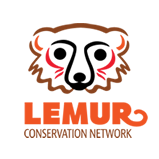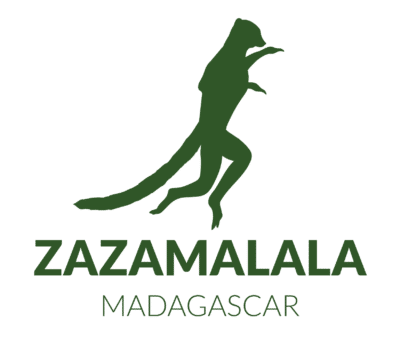
What We Do
The Zazamalala Foundation protects the dry deciduous forest of western Madagascar through reforestation, community development, captive breeding, and forest monitoring.
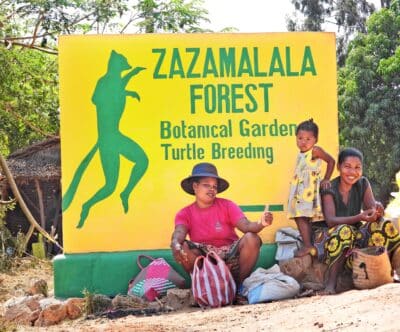
The Zazamalala forest was established in 2000 when blind Simon Rietveld returned after 30 years to the Morondava area in West Madagascar. He was shocked that most of the dry forest had been cleared. So, Simon and a team of international volunteers, together with paid local people, planted thousands of seedlings of rare species that once lived in the area. Gradually, the Zazamalala forest started to flourish.
Just 30 minutes by car from the Morondova airport, Zazamalala is an oasis of wilderness alongside small villages and rice fields. It provides the habitat for many animals, including lemurs, fossa, bush pigs, mongoose, snakes, and chameleons, and a huge variety of plants. At the Zazamalala botanical garden, we collect thousands of seeds and use them for reforestation. Zazamalala also houses a tortoise and turtle breeding centre.
What Lemur Species We Protect
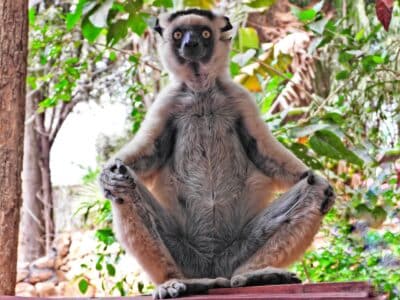
The following lemur species can be found at Zazamalala.
- Verreaux’s sifaka (Propithecus verreauxi)
- Greater bamboo lemur (Prolemur simus)
- Ring-tailed lemur (Lemur catta)
- Red-fronted brown lemur (Eulemur rufifrons)
- White-fronted brown lemur (Eulemur albifrons)
- Fat-tailed dwarf lemur (Cheirogaleus medius)
- Madame Berthe’s mouse lemur (Microcebus berthae)
- Grey mouse lemur (Microcebus murinus)
- Coquerel’s giant mouse lemur (Mirza coquereli)
- Western fork-Marked dwarf lemur (Phaner pallescens)
- Red-tailed sportive lemur (Lepilemur ruficaudatus)
How We Protect Lemurs and Other Wildlife
Reforestation
We are working to reforest a 30 km long and 1 to 3 hectares wide green corridor that will combine two isolated nature reserves: Mena Be and Zazamalala nature reserves. This corridor will allow animals to mingle, which is essential for genetic diversity. Thanks to our donors, Zazamalala forest was substantially enlarged between 2019-2021. We continually reforest and add more hectares of land, making more habitat for animals on the edge of extinction.
Turtle Breeding Program
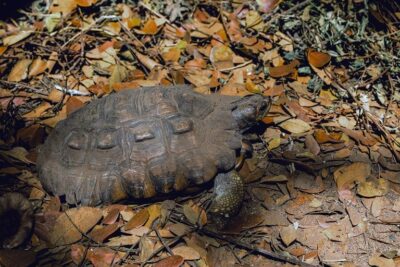
In the Zazamalala botanical garden, we breed two critically endangered turtles.
The critically endangered Flat-tail Tortoise (Pyxis planicauda) lives in a small part of the dry deciduous forest of west Madagascar. The last remaining males and females rarely meet and when they do, the female produces only a single egg per year. In the Zazamalala botanical garden, we keep many males and females together to maximize encounters and release the young after two years.
The critically endangered Madagascar Big-headed Turtle (Erymnochelys madagascariensis) lived for millions of years in the rivers and lakes of west Madagascar. At Zazamalala we breed them in large semi-natural containers, and release the young after one year.
In 2020, 43 critically endangered newborn Big-head turtles and Flat-tail tortoises were released in the forest and its ponds.
How We Support Local Communities
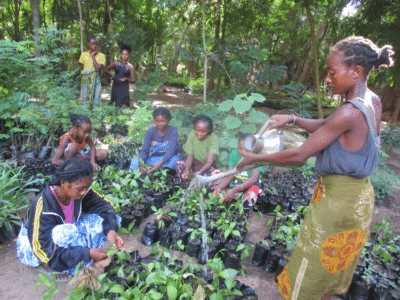
Apart of reforestation and breeding of endangered animals, community development is a prime issue. This means giving as many local people as possible paid work in the forest so they can be economically independent.
Education
In the villages around Zazamalala, education is limited and people have no electricity, bicycles, or books. We support education by repairing schools and constructing latrines and school desks. We also organize activities to help people learn to write and speak French, which is important to find work.
Health and Development
We improve roads and constructs water pumps to provide the local community with clean drinking water. Zazamalala distributes ADES solar cookers to help families reduce their need for fuelwood and charcoal from the forest.
In 2020, 85 solar cookers were distributed to local families. Another 100 cookers were distributed in 2021.
